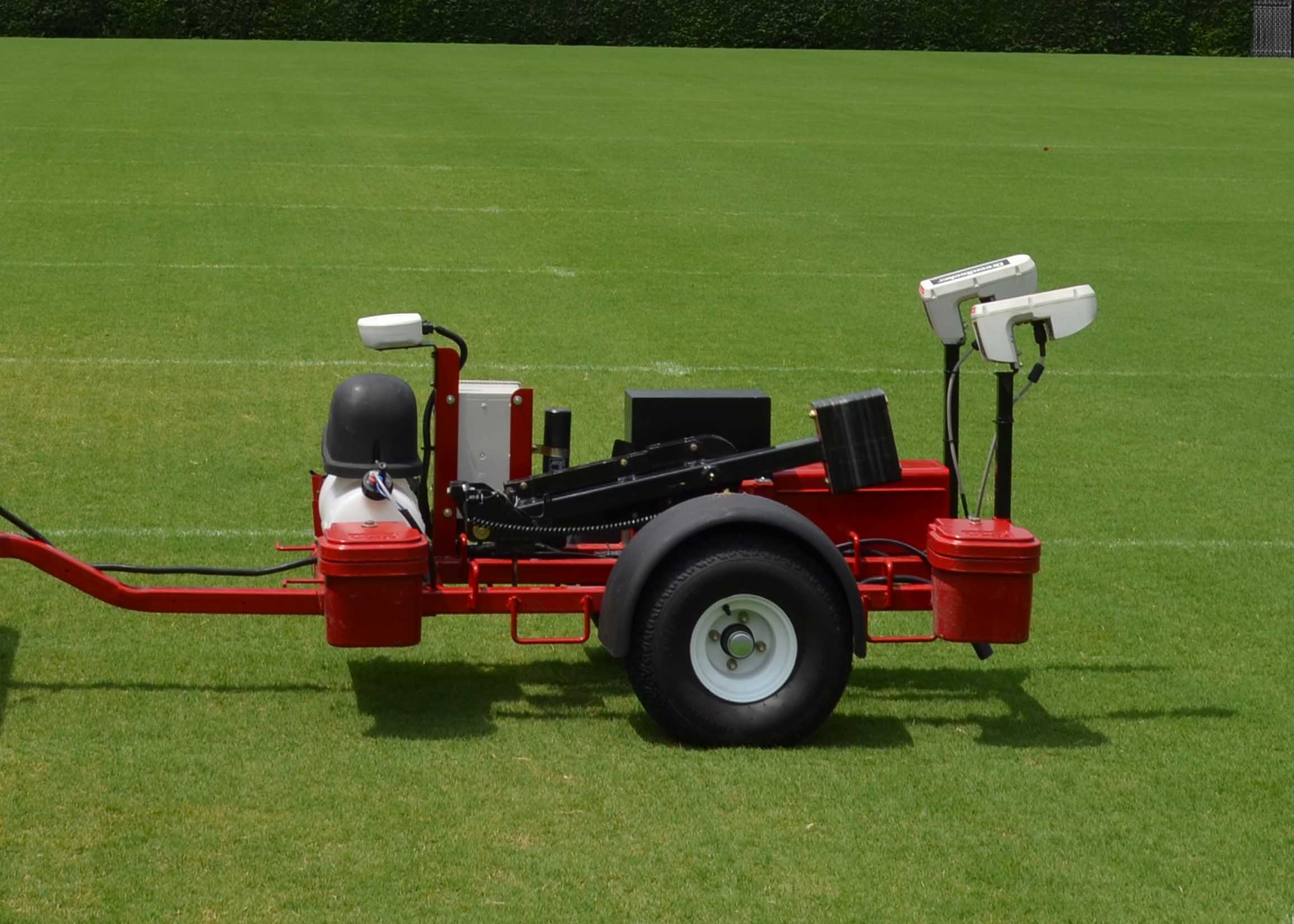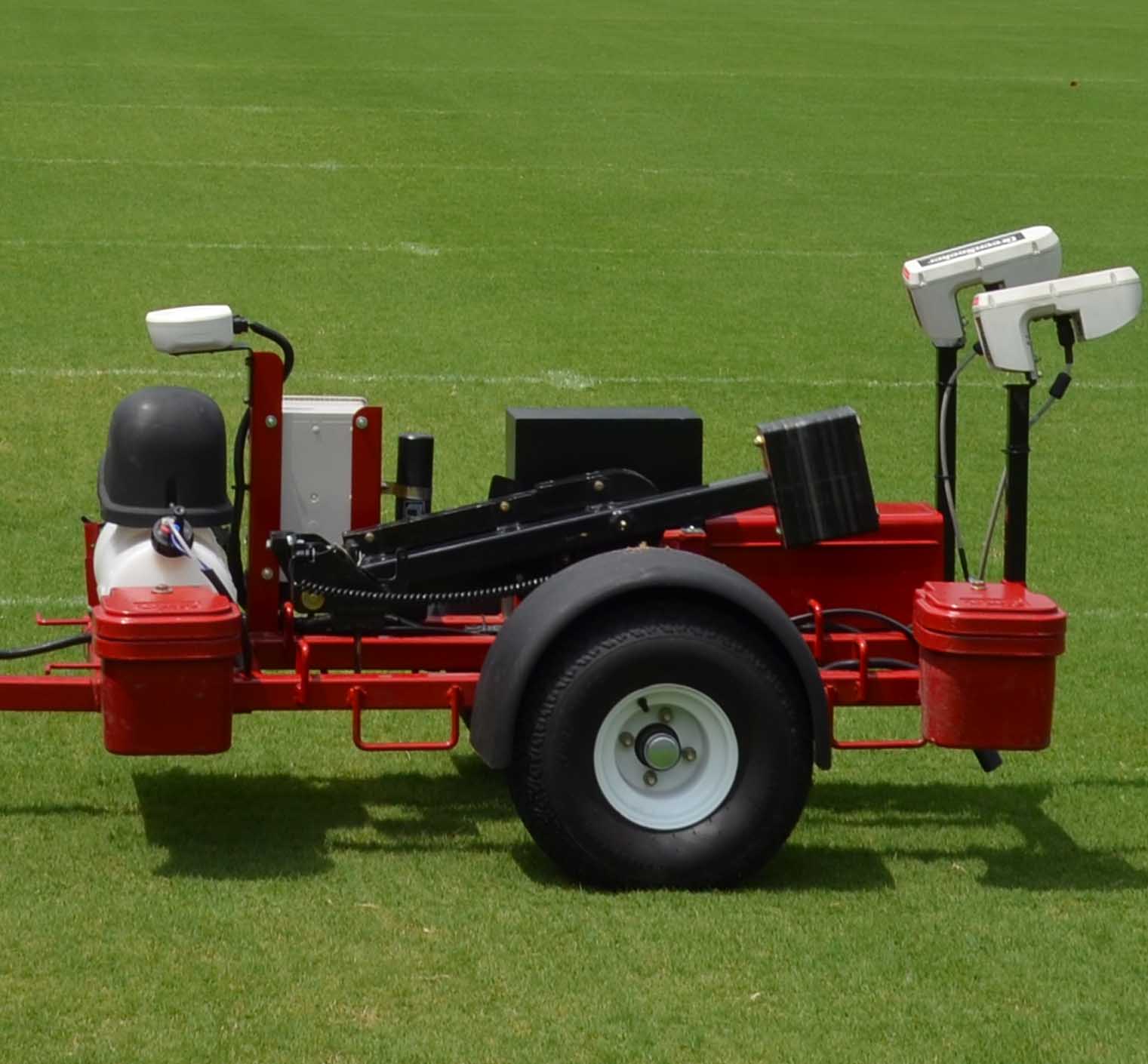Two College of Agricultural and Environmental Sciences (CAES) students are using their academic experiences to affect lasting change on the University of Georgia’s Athens Campus.
Crop and soil sciences doctoral candidate Chase Straw, of Frankfort, Kentucky, and Mitch Reynolds, a senior from Stone Mountain, Georgia, studying environmental economics and management, received grants from the UGA Office of Sustainability to tackle on-campus projects.
Straw will use his $5,000 grant to create site-specific management plans for some of the campus’ lawns and intramural sports fields in order to reduce the use of water and other inputs for large grass areas while still maintaining these landscapes. Reynolds is using a $2,921 grant to build a biodiesel processor for a tractor to be used at the UGArden, a student-run farm on campus.
These projects are two of 11 funded this year through $43,000 from the UGA Office of Sustainability.
Smarter turf management
As part of his project, “Development of a Site-Specific Management Plan for Campus Grass Areas and Campus Intramural Athletic Fields,” Straw is hoping to use the technology and research pioneered by the UGA turf sciences team to improve the management of UGA’s fields and lawns.
The goal of his proposal is to develop a site-specific management plan for large grass areas on campus that will reduce water and energy inputs.
This will be accomplished through the use the Precision Sense 6000, which works like a slow-moving lawn tractor. The PS6000—equipped with a myriad of sensors—allows for rapid sampling of turfgrass sites for measurements of soil moisture, soil compaction and plant performance, all while using GPS to create a map of location samples.
UGA has one of only two functional PS6000s in the United States—the other is used on commercial golf courses and sports fields around the nation. The map will allow them to create a plan, “focusing inputs only where, when and in the amount needed to reduce time, labor and costs, and also for a more sustainable approach to turfgrass management," Straw said.
Straw hopes that, “by focusing on improving the troubled turf areas, that UGA students have a more enjoyable experience while on campus, whether it be studying in a grass area or playing sports on the IM (intramural) fields.”
Straw said the take-home message of his project is “that ‘blanket’ applications aren’t always necessary to achieve high quality turfgrass.” He expects to begin the PS6000 data collection at the end of April, once the grass is fully out of dormancy.
Originally from Kentucky, Straw became interested in turfgrass management while getting his undergraduate degree from the University of Kentucky.
“I got a summer job on the sports turf crew at the University of Kentucky,” said Straw. “After working that summer on all of UK’s sports fields and being around all the teams, I decided turfgrass was what I wanted to pursue as a major.”
On-farm fueling
Reynolds’ project, which involves converting used cooking oil to biodiesel in order to power a tractor at UGArden, would reduce the carbon footprint of the farm and provide another learning opportunity at UGArden, which is used for student learning and community demonstration purposes.
“Running farm equipment off of used cooking oil reduces the university's carbon footprint [and] reduces the amount of waste that goes to a landfill or processing facility,” said Reynolds.
Reynolds hopes this project can set an example for other farmers. “I'm really excited about setting up a model for farmers around the state to do the same thing with their equipment. A lot of little changes like that can go a long way,” said Reynolds.
Reynolds spent last semester creating the proposal, and hopes to have the tractor running on biodiesel by the end of May. He said the best part about this project is getting to work with his professors. “They're all characters, and I'm blessed to get to be in their classes every day,” he said.
The UGA Campus Sustainability Grants Program chooses proposals based on UGA’s 2020 Strategic Plan, which has the goal of conserving resources, educating the campus community, influencing positive action and providing research. The program began in 2010, and since that time it has awarded $130,000 to 37 student-initiated projects.
The UGA Office of Sustainability’s mission is to coordinate, communicate and advance sustainability initiatives at UGA in the areas of teaching, research, service and outreach, student engagement and campus operations.








